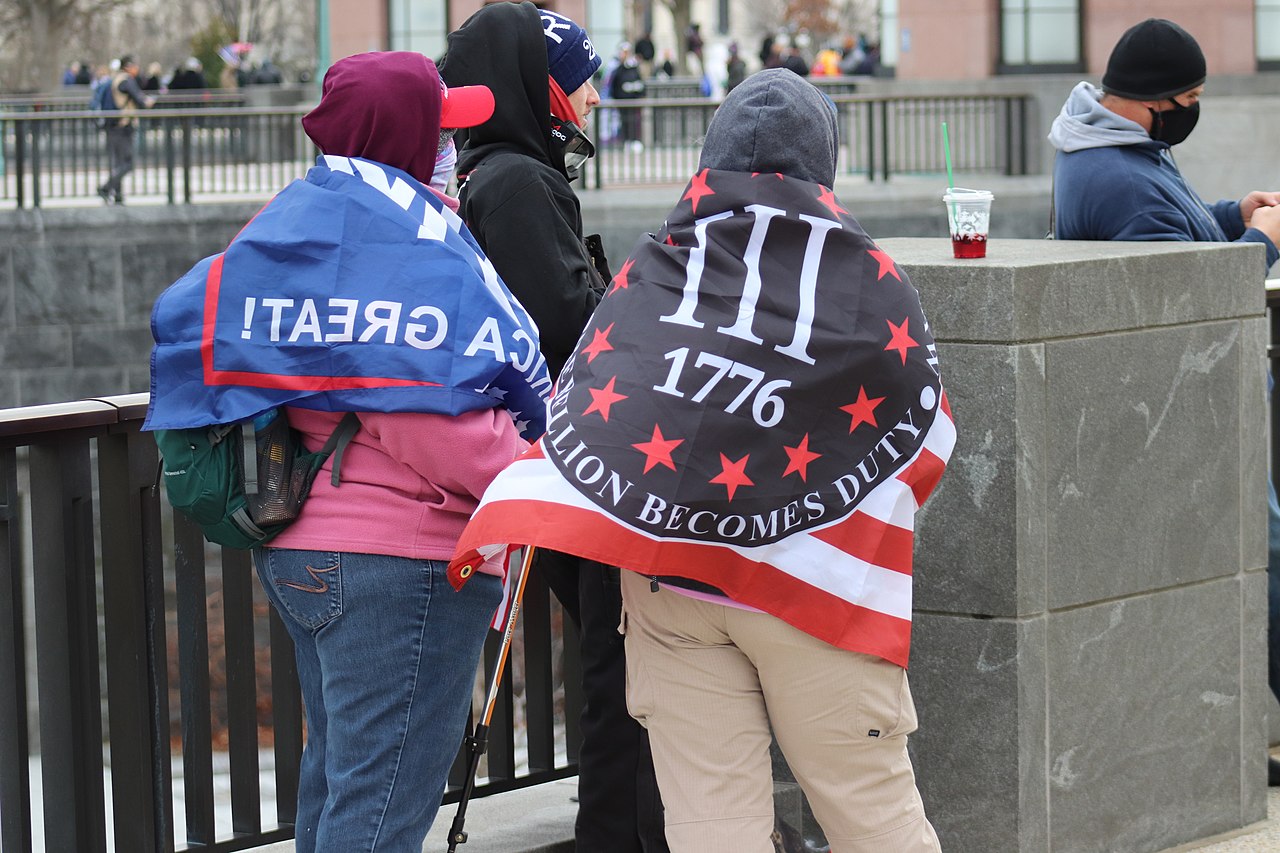Canada has placed four new entities on its list of terrorist organizations, including two right-wing extremist groups and one neo-Nazi group.
The Three Percenters, an anti-government group linked to a recent bomb plot in the U.S. with a known presence in Canada will join Aryan Strikeforce, a neo-Nazi group with contacts in Canada that intends to carry out violence and start a race war, on the list.
James Mason, a 69-year-old American neo-Nazi who has provided ideological and tactical instruction on how to operate a terrorist group to other entities on the terrorist list, is now listed.
Also added is a Daesh affiliate, Islamic State — Democratic Republic of the Congo.
With these additions, there are now 77 terrorist entities listed under the Criminal Code, according to a government statement.
The far-right group Proud Boys was added to the list in February after members stormed the U.S. Capitol in Washington on Jan. 6. Also added in February were the Atomwaffen Division, which has called for violence against racial, religious and ethnic groups; and the Base, another neo-Nazi organization that advocates violence to incite a race war.
In 2019, two organizations became the first neo-Nazi groups to be listed as terrorist entities: Blood & Honour and its armed branch, Combat 18 (C18).
Both the Aryan Strikeforce and the Three Percenters “have indicated their interest in recruiting among our law enforcement and military agencies, and they do attract some adherents who are former law enforcement and former military,” Public Safety Minister Bill Blair said at a recent press conference.
Still not on the list is Iran’s Islamic Revolutionary Guard Corps (IRGC). Three years ago, a private members bill from Alberta Conservative MP Garnett Genuis calling on the government to list the IRGC passed with bipartisan support.
Genuis told The CJN recently that he’s mystified about why there has been no progress on listing the IRGC.
He said claims about the process taking a long time were “demonstrated to be false” by the speed at which the government was able to list the Proud Boys.
Genuis also noted that an Ontario court recently found that the downing of Ukrainian Airlines flight 752 in January 2020, in which 85 Canadians and Canadian residents died, was a deliberate act of terrorism by the IRGC.
The IRGC is “the largest sponsor of terrorism in the world,” Conservative public safety critic Shannon Stubbs said in a statement.
Earlier this month, B’nai Brith Canada said it was “baffled and disturbed” that Ottawa had still not listed the IRGC as a terrorist entity.
In 2012, the previous Conservative government added to the terrorist list the IRGC’s Quds Force, described as “the clandestine branch” of the IRGC.
In January 2020, B’nai Brith asked the federal government to indicate whether it intended to designate the IRGC in its entirety as a terrorist group. When there was no response, B’nai Brith launched a lawsuit requiring the federal government to answer the request one way or another.
That case is still winding its way through the justice system.
Earlier this month, a spokesperson for Blair said Canada “continues to have in place a series of strong measures” to hold Iran and the IRGC “accountable.”
Canada continues to list the IRGC’s Qods Force as a terrorist entity, and lists Hezbollah, Hamas, the Palestinian Islamic Jihad, and the Taliban as terrorist organizations.
She noted that in 2019, Canada added three new Iran-backed groups to the list: al-Ashtar Brigades, Harakat al-Sabireen and the Fatemiyoun Division.
As well, Canada continues to list Iran as a state supporter of terrorism under the State Immunity Act, partially lifting its state immunity to allow civil actions to be taken against it under the Justice for Victims of Terrorism Act (JVTA).
The government continues to impose sanctions on Iran and the IRGC targeting all four of its branches as well as members of its senior leadership under the Special Economic Measures Act in response to Iran’s nuclear and ballistic missile programs, spokesperson Magali Deussing wrote.
She said individuals and entities listed under the Special Economic Measures Act are prohibited from any dealings with Canadians, which effectively freezes their assets in Canada.
Canada’s sanctions on Iran include an arms embargo and prohibitions on the export, sale, and supply of specified goods, as well as technical assistance in relation to these goods, Blair’s department said.
